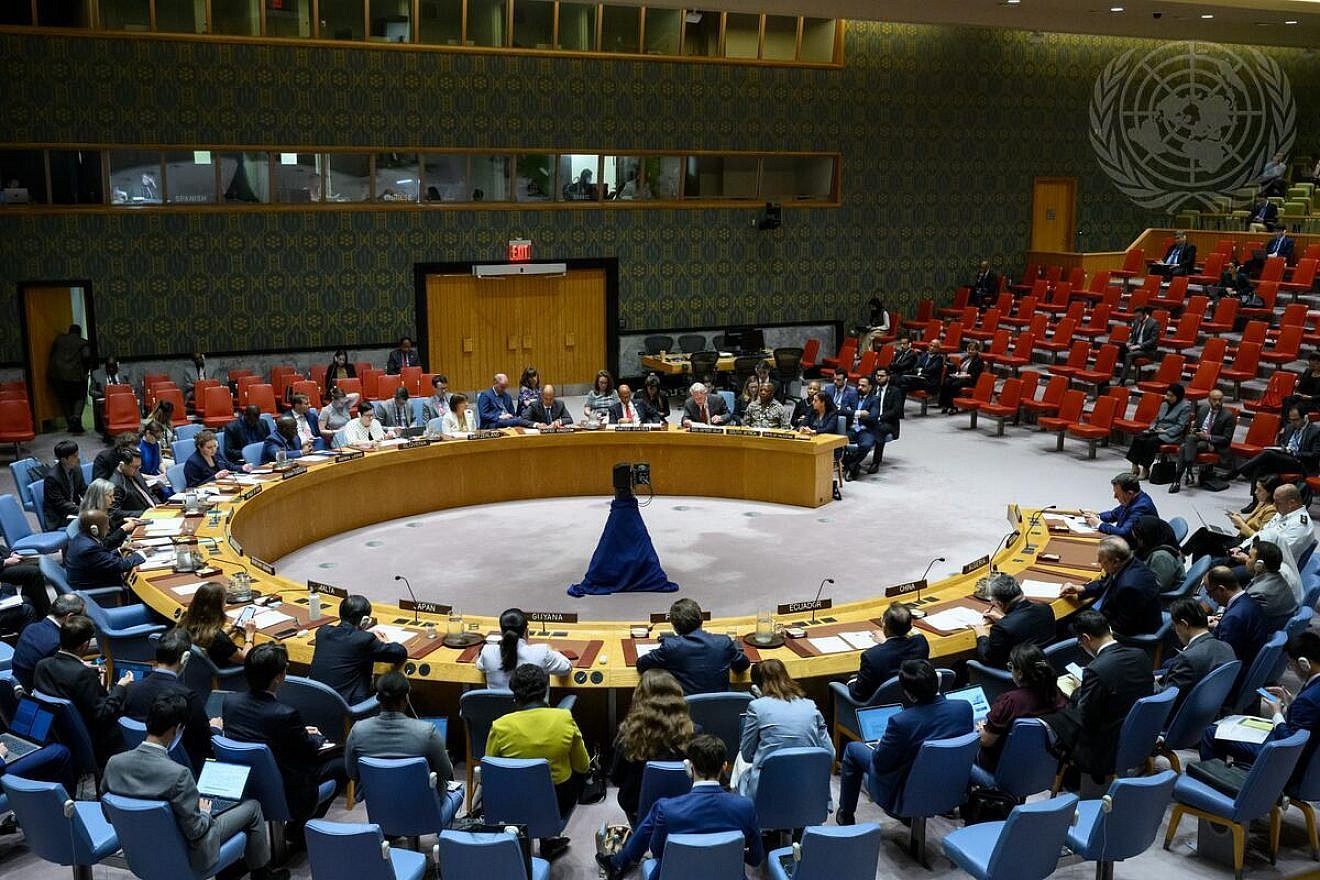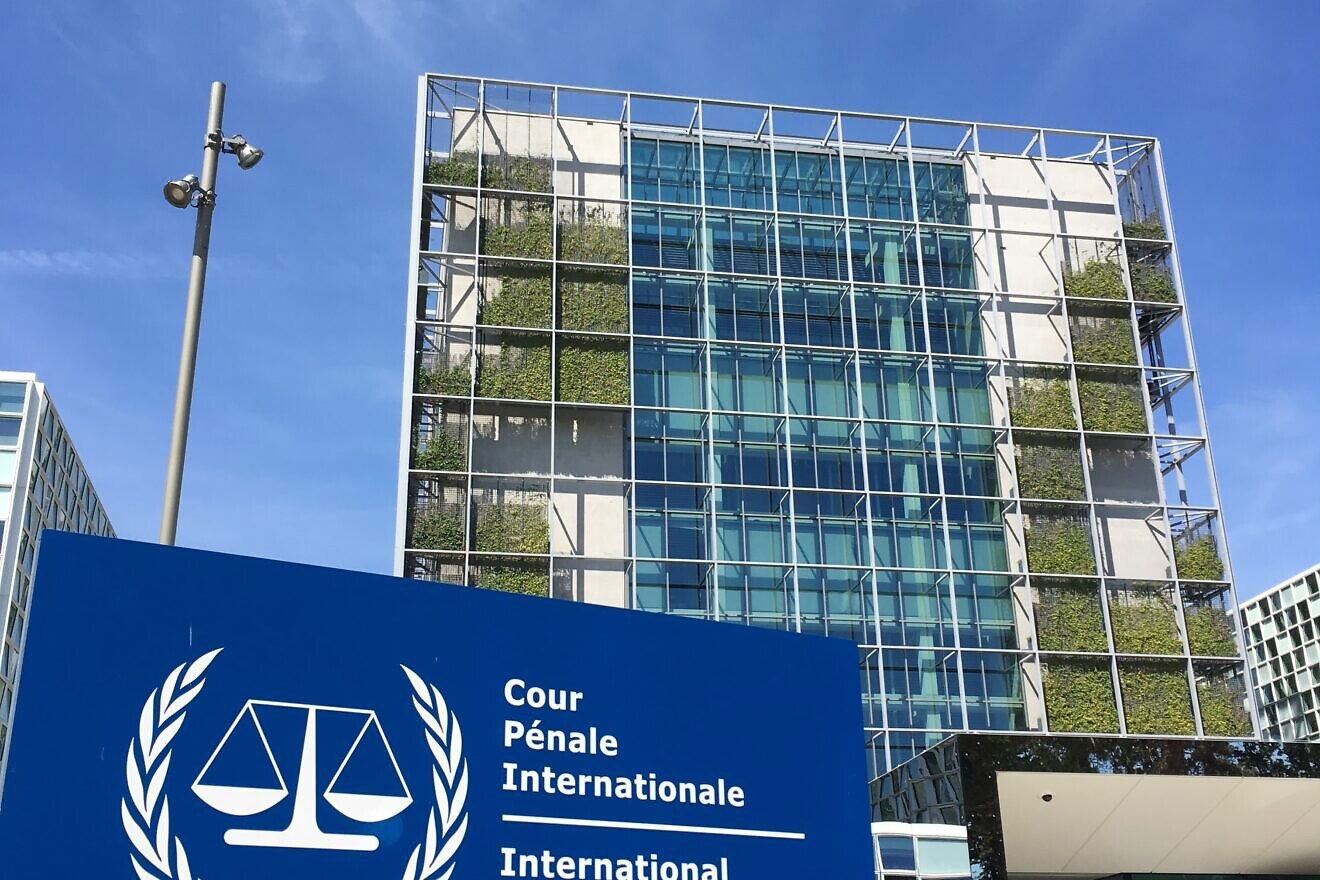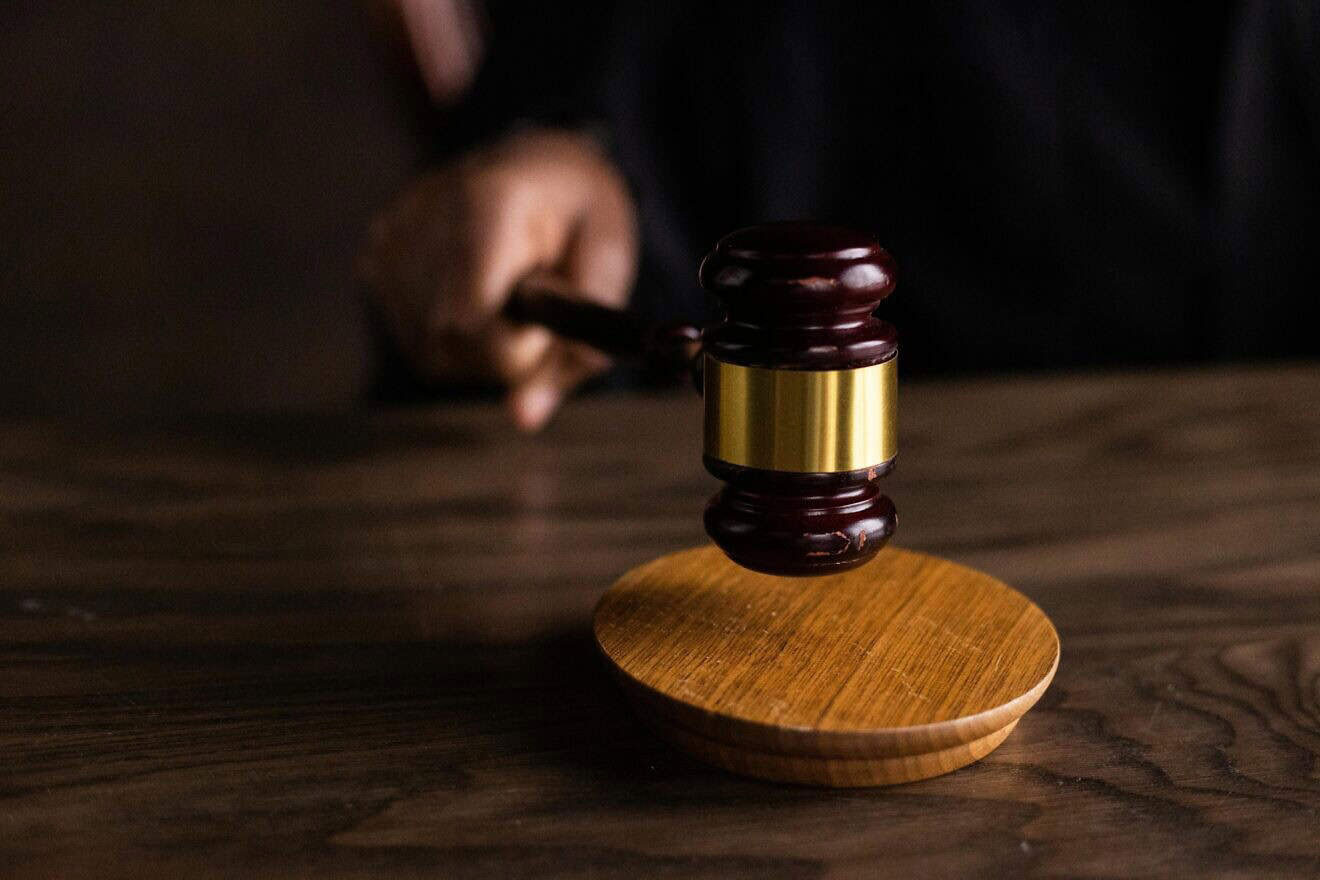(JNS) — Washington on Sunday put its U.N. Security Council draft resolution on the Israel-Hamas war “in blue,” after announcing that Israel had accepted the text.
(A UNSC draft resolution being printed in blue means negotiations regarding the text are approaching their final stage.)
There were several notable changes from the previous text. Among them is that the draft now explicitly states that Israel has accepted the multi-phased ceasefire deal announced on May 31 by U.S. President Joe Biden. (Previous texts said that Israel found the deal “acceptable.”)
The “blue” text stipulates that a ceasefire will continue even if phase-one negotiations take longer than six weeks, for as long as talks are continuing. Phase one of the deal calls for “an immediate, full and complete ceasefire with the release of hostages, including women, the elderly and the wounded, the return of the remains of some hostages who have been killed” along with the release of Palestinian security prisoners, withdrawal of IDF forces from populated areas of Gaza, the return of Gazan civilians to their homes throughout the Strip and the scaling up of aid delivery.
The question of how long the ceasefire is expected to hold should Israel feel it is being strung along in bad-faith negotiations has been a major sticking point in discussions, and a question left unanswered by Biden administration officials.
Another significant change includes removal of the mention of “buffer zones” in a section rejecting territorial changes in Gaza. The Israel Defense Forces has been creating buffer zones along the Israel-Gaza border to provide an extra layer of security, with plans to expand them. The removal of the term appears to be a direct concession to Israel, despite stated U.S. opposition to the creation of the zones.
The Arab Group had proposed a provision that would see Israel and Hamas treated as equal signatories to the deal, with both bearing equal responsibility for its implementation. A Russian amendment would have called for an immediate, unconditional and permanent ceasefire. Both were rejected in discussions, according to JNS diplomatic sources.
The Israeli mission to the United Nations reportedly voiced opposition to an earlier form of the resolution last week, due to its explicit call for a ceasefire and its laying out of the three-phased plan, which in phase two would bring about a permanent ceasefire in exchange for the release of all remaining hostages and a full withdrawal of IDF forces from Gaza and, in phase three, the start of a major Gaza reconstruction plan and the return of the remains of any killed hostages still in Gaza.
The “blue” resolution also calls for the Palestinian Authority to resume governance over Gaza — an idea explicitly rejected by the Israeli government.
On Sunday evening, the U.S. mission to the United Nations released a statement saying that “Israel has accepted this proposal and the Security Council has an opportunity to speak with one voice and call on Hamas to do the same. Doing so would help save lives and the suffering of civilians in Gaza as well as the hostages and their families. Council members should not let this opportunity pass by and must speak with one voice in support of this deal.”
A spokesperson for the mission clarified that Washington had not explicitly called for a Monday vote, but reiterated what was expressed in Sunday’s statement: That it called on the Security Council “to move towards a vote” on the U.S. resolution.
Russia and China have opposed nearly every U.S. initiative in the council relating to the Israel-Hamas war. As of Sunday night, it remained unclear whether they would wield their veto power to thwart the U.S. resolution should it come up for a vote.
Separately, the P.A. has requested an emergency meeting of the Security Council to address what the P.A. terms a “massacre” by Israeli forces in the U.N.-run Nuseirat camp in Gaza, where four Israeli hostages were extracted by Israeli forces in a daring daytime raid on Saturday. The hostages were being held in civilian homes, protected by Hamas terrorists.





